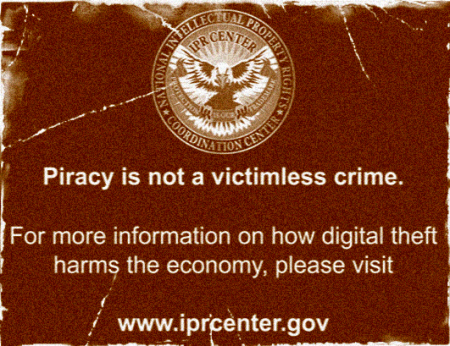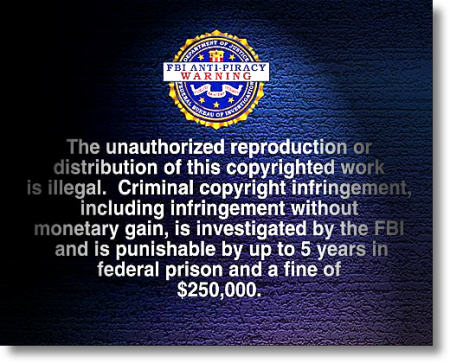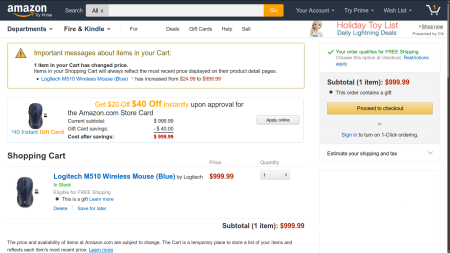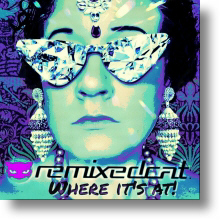
The worst thing that Motion Picture Association of America (MPAA) ever did was to move from VHS analog video tape to DVD digital optical discs.
Macrovision protected VHS tapes were almost impossible to copy without noticeable loss in visual quality. DVD optical discs, on the other hand, are extremely easy to copy (even with embedded multiple layers of copy protection schemes) with little or no discernible degradation in visual quality.
LaserDiscs contained no copy protection. These massive optical discs could be transferred to VHS or other media with minimal loss of visual quality. Their limited length per side (approximately 60-minutes) made it necessary to use dual-sided and/or multi-disc sets for a single movie. The convenience and relative cheapness of the DVD condemned the LaserDisc to extinction.
The ability to copy (rip or transcode) a commercially produced DVD has existed for over a decade. Microsoft Windows based software, like DVDFab, have been available for download since the days of Windows 98.
Many legal attempts have been made to eradicate the availability of such software. DVDFab itself recently came under attack and lost its dot com domain name in the United States. This did not stop the Chinese software manufacturer from utilizing servers and domain names housed in its native country.
Ripping vs. Transcoding:
Ripping is the process of extracting data from an optical disc (in part or in whole) and then either storing that data on a hard drive or other similar storage media or burning that data to a new blank optical disc without altering the format of the original data. The VOB file format remains unchanged.
The ripping process can also output a self-contained single file in the form of an uncompressed ISO image. These image files can be “mounted” on a computer system to mimic a physical optical drive or used to create new burned optical disk copies of the original disc.
Transcoding is the process of extracting the files from an optical disc and then converting those files into a completely different file format. The conversion usually involves highly specialized compression codecs that shrinks the final outputted file size with varying degrees of quality degradation.
Transcoded output file formats include: AVI (Xvid, AVC, MPEG1/2/4), MPG/MPEG, MKV (h.264, x.264, AVC, MPEG1/2/4, VC-1), TS/TP/M2T (MPEG1/2/4, AVC, VC-1), MP4/M4V/MOV (MPEG4, h.264), M2TS, WMV9, FLV (h.264). And others.
Mixed Signals:
On one hand the commercial DVD industry is criminalizing anyone who copies one of their discs, but on the other hand, home entertainment device manufacturers are producing inexpensive set-top boxes and Blu-Ray players capable of playing transcoded file formats.
A plethora of free transcoding software has been available on the Internet for years. More of this software is available for Linux users than Windows or Mac users. Programs like HandBrake, OGMRip, AcidRip and Thoggen (just to name a few) do a fantastic job of transcoding a DVD.
How are consumers supposed to interpolate these messages? Don’t copy that DVD! Here’s free software so you can copy a DVD. Piracy is not a victimless crime. But here’s some really cool hardware that allows you to play transcoded DVD files.
The Computer Age:
Computers and other devices (tablets/smart phones) permeate every aspect of modern society. The home entertainment center is no exception.
Consumers want the right to take transcoded copies of their legally purchased commercial DVD collection and make those files available on their home server networks or on storage devices connected to their home entertainment centers.
Streaming media companies such as Netflix may one day replace the need for the DVD, but not today. The total sum repository of every DVD ever manufactured does not exist online. Streaming media services contain only a fraction of the total wealth of content available in the DVD market. Consumers are still dependent upon themselves to create DVD collections of their favorite programs.
Many rural regions still lack broadband Internet connectivity. For these people, the DVD remains their only outlet for access to this content.
Criminalizing honest consumers in this day and age is outdated thinking.
What the DVD industry fears is an individual who will rip and copy a commercial DVD, mass reproduce that disc and then sell it on the open market. But if everyone has the ability to rip or transcode a commercial DVD, then this individual’s livelihood disappears.
Posting a copied commercial DVD on the Internet must remain a criminal act. Mass redistribution is absolutely unlawful.
Recording a major motion picture at a local theater and then distributing it in any form is likewise illegal. And also unnecessary, since most major productions are officially released on DVD a short time after the theatrical release.
Anyone who knowingly purchases a counterfeit DVD title should be prosecuted. That’s just common sense.
The Victimless Crime:
The individual who rents a commercial DVD or checks one out for free from their local public library, takes it home and makes a copy of its contents (ripping or transcoding; in part or in full) was not going to purchase that DVD title. The full purchase price was never going to be paid.
If they could not copy it, they would simply watch it and return it at the appropriate time. To them, that DVD was not worth the retail price.
They have no intention of reselling, giving away, posting it on the Internet or otherwise redistributing the copy they made.
Since the DVD manufacturer was never going to make a profit from this individual, their loss of income is negated. Logically one can only lose money if and only if there was first money to be gained.
You cannot steal an object from someone if that other person never processed that object to begin with. The theft in copying a commercial DVD for one’s own personal use is not a monetary theft.
Consumer Rights:
A commercially produced DVD depreciates in value the moment it is purchased. Now it becomes a “used” DVD. Yet somehow when you make a lesser-quality transcoded copy of that DVD, the copy becomes more valuable than the original.
You go to the store and you purchase the latest DVD title. You take it home and pop it into your DVD player only to discover the disc is defective. So you mail the disc to the manufacturer and kindly ask for a replacement. They send the disc back to you and tell you that it’s not their problem. You need to take it back to the store.
Why? It’s not the store’s fault. The manufacturer made an inferior product and they should be held accountable.
What happens if the manufacturer never mails that disc back to you? They send you nothing. You just paid for merchandise that you’ll never see again. Now do you the right to borrow that same disc from someone and make a copy of it?
Due to excessive wear, your favorite DVD is starting to crack and break around the center hole of the disc. Do you have the right to make a copy of that disc to protect your purchase?
You’re about to take a long family vacation trip in your shiny new van with the built-in DVD player. You don’t want to take your DVD collection on the road for fear that they might get damaged or stolen. Do you have the right to make copies of those discs?
A certain DVD title that you want to purchase is no longer available. You’re willing to pay top dollar for that movie but it’s out of print. Do you have the right to borrow or rent that discontinued disc and copy it?
The MPAA opposes ripping because they want to force consumers to buy multiple DVD copies of the same title when their original purchased DVD wears out. Except most consumers won’t do that. The average DVD viewer will watch a certain disc one or two times and then shelve it. Children, especially small children, will watch a DVD title endlessly until it wears out, but by that time a newer DVD tile is released and they are no longer interested in the first title.
In Soviet Russia, you don’t own DVD…
What license?

The contents of a DVD falls under the category of software. When you purchase a commercial software program for your computer it comes with an end-user license agreement (EULA). You must accept the agreement in order to use that software. While a commercial DVD may imply a licensing agreement, it is not explicitly stated either on the disc or on the packaging.
If a commercial DVD title did contain such an agreement, it would probably look something like this:

Okay. That’s an exaggeration. But if a license did exist, it should load before the end-user could access the contents of the DVD.
Instead, however, most discs carry a warning.

The warning states that if you copy this DVD in any way, shape, manner or form, even if you don’t redistribute or make a single penny from the copy, you could be imprisoned for up to 5 years and pay a fine of $250,000 (USD) per violation.
So, you went to Walmart and purchased a commercial DVD from the $5 bargain bin, took it home and made a transcoded copy for your own use. That $5 disc is suddenly valued at $250,000. And you could send the next 5 years languishing in federal prison. Is that a reasonable punishment for such an act?
You can go to your local library and borrow any commercial DVD that they have in inventory. You have access to that disc any time that it’s available. You didn’t pay for that disc. Why is that not considered piracy?
If you loan a DVD from your private collection to a friend for free, shouldn’t that be considered piracy? What difference does it make what form the copy takes if a person never paid to access that content?
Every commercially mass produced DVD is in itself a copy of a master digital program. But according to the law, that content is only legally legitimate if and only if it is accessed from the manufacturer’s physical optical disc.
Some argue that consumers absolutely have the right to make an archival backup of any commercial DVD that they purchased to protect their investment in that title. The computer software industry has granted the end-user the right to not only backup software but to backup their computer’s operating system.
Programs such as Norton Ghost (now System Recovery), Acronis or Clonezilla can be employed to make an image file of a computer’s hard drive, including the commercial operating system and all installed software packages. Microsoft also includes a complete backup solution in Windows 7 through 8.x.
From a consumer’s point of view, software is software. You paid good money for that DVD and you should have the right to back it up.
The Cost of Copy Protection:

The DVD industry has spent a lot of money in researching and developing copy protection schemes that have all failed. Every one of these has been cracked, most within a day of being discovered.
That’s a huge loss of company funds in trying to protect something that cannot ultimately be protected.
The Solution:
Keep the region coding — remove the copy protection. Allow customers to legally copy their purchased DVD. By adding this value to the DVD, consumers will buy more DVD titles. Profits will increase.
The money saved by abandoning the research and development of futile copy protection schemes becomes pure profit.
The real pirates who mass reproduce unlawful copies of DVD titles to sell will no longer find a ready market for their goods and services because consumers will not pay someone for something they could do themselves.
Lawsuits are expensive. Trying to force manufacturers who produce DVD copying software out of business in a court of law puts an addition strain on a company’s financial resources. And even in cases when the DVD industry wins in court, the software remains readily available.
Insanity: doing the same thing over and over again and expecting different results.
— Albert Einstein
It’s time to stop treating customers as potential criminals. They just want to utilize the technology that they paid hard-earned cash for to its full potential. Many already do and many more will follow their lead.
It’s time to stop this insanity.











